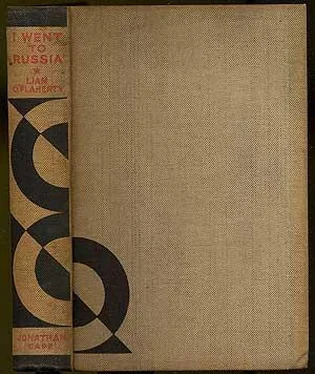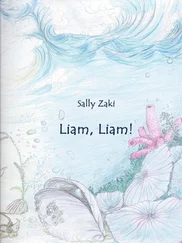Liam O'Flaherty - I Went to Russia
Здесь есть возможность читать онлайн «Liam O'Flaherty - I Went to Russia» весь текст электронной книги совершенно бесплатно (целиком полную версию без сокращений). В некоторых случаях можно слушать аудио, скачать через торрент в формате fb2 и присутствует краткое содержание. Город: London, Год выпуска: 2011, ISBN: 2011, Издательство: Bloomsbury Publishing, Жанр: Публицистика, на английском языке. Описание произведения, (предисловие) а так же отзывы посетителей доступны на портале библиотеки ЛибКат.
- Название:I Went to Russia
- Автор:
- Издательство:Bloomsbury Publishing
- Жанр:
- Год:2011
- Город:London
- ISBN:9781448205592
- Рейтинг книги:5 / 5. Голосов: 1
-
Избранное:Добавить в избранное
- Отзывы:
-
Ваша оценка:
- 100
- 1
- 2
- 3
- 4
- 5
I Went to Russia: краткое содержание, описание и аннотация
Предлагаем к чтению аннотацию, описание, краткое содержание или предисловие (зависит от того, что написал сам автор книги «I Went to Russia»). Если вы не нашли необходимую информацию о книге — напишите в комментариях, мы постараемся отыскать её.
I Went to Russia — читать онлайн бесплатно полную книгу (весь текст) целиком
Ниже представлен текст книги, разбитый по страницам. Система сохранения места последней прочитанной страницы, позволяет с удобством читать онлайн бесплатно книгу «I Went to Russia», без необходимости каждый раз заново искать на чём Вы остановились. Поставьте закладку, и сможете в любой момент перейти на страницу, на которой закончили чтение.
Интервал:
Закладка:
‘Odd!’ I thought. Very odd, indeed, that this structure should become the central point of a revolutionary movement, aiming to free the proletariat of the world from the chains of capitalism. Nothing could be more odd. Nothing could have less in common with the machine age and the cold materialism of the machine age. Nothing could be less like America, which is the product of the machine age. These hoary walls, with their ridiculous towers and the barbaric churches they enclose, smell of ancient times, of mysticism and of the East as we have come to know it, the land of strange Gods and of horrifying superstitions and of occult governments, most cruel tyrannies, savage laws and strange vices. How can these people live within these walls and still bear homage to the philosophic principles of dull, sentimental German sociologists and irascible Jews, who are always so enamoured of change and destruction? Surely residence within those walls must turn the most cold-blooded materialists into mystics. So, they have kept the Tsar’s golden eagle flying above the red flags and the flags themselves bear a mystic emblem, the sickle and hammer, something akin to the mystic symbols of the Egyptians and the Hindoos and the other races of the East.’
As I pondered, dawn passed and already there were crowds in the streets hurrying to their work. The gangs that had worked all night tearing up the streets and laying down new roadways were now going home. Other gangs were taking their places. On every side there was a great clanking and hammering and the rumbling of traffic. New buildings, surrounded with great wooden cages, lay here and there and the workmen were already mounted on the scaffoldings, beginning their work, some of them singing, women with red bonnets among them and at the four corners of each building little red flags fluttered, similar to those that fluttered about the golden eagle over the Kremlin, mystical symbols, signifying that all work, both the building of houses and the night-long conferences in the Communist Party headquarters, was for the glory of the new god.
Never have I seen, not even in New York, such a frenzy of work, all rendered more apparent by the unity of control and the absence of the anarchy caused by senseless competition in our countries.
Wandering through the streets I felt happy and enthusiastic because of the labour I saw about me, glad that at last an attempt was being made to organise modern society on a rational basis: just as I had been irritated by the attempt to organise the writers at the House of Hertzen. This activity was real and positive, whereas the other activity was childish and negative. This activity was manifestly necessary, an attempt to create order out of chaos. The other useless, an attempt to reach heaven by building a Tower of Babel. Looking at these thin, ill-clad, half-starved workers, going eagerly to their duties, I understood all that was real and beautiful in the Russian revolution, a glorious attempt by a people to save themselves from barbarism, tyranny and the continual recurrence of famine. On the other hand, the foolish pranks of the intellectuals made manifest the fact that every crank in the world has made the Soviet Union his happy hunting ground, bringing schemes impossible of realisation and living on the backs of these workers, who are doing their utmost to perform an almost impossible task.
As a little boy I remember how delighted I was watching the basket makers and how I stared in amazement as the baskets assumed shape from the wilderness of willow rods that were twisted to and fro in their supple fingers. And the tailors, sitting cross-legged on their tables, equally excited me and I thought it a deep mystery how they managed to make a garment quickly and without error from a piece of cloth, with their scissors and their tape and their piece of chalk and their needle and their thread. So did the sowers in the fields in spring fill me with awe, how they spread their seeds on the grass that had faded under the manure and then tore up the earth with spades and covered the earth and in some mysterious manner the seeds reproduced themselves and in late summer, when that place was again opened with a spade, there was fruit hanging to the roots of the stalks that grew.
But again, work in our cities has become tarnished and dull by the suffering it causes, by the hordes of slaves it has brought into existence and by the immoral ends to which it is generally put. Nobody gets excited over a new building because there are already too many buildings. Nobody cheers when a new factory is built because there are already too many and because the goods produced are generally without social value. Even the growing of corn and of other necessary foodstuff has ceased to have a meaning, for its immediate and beautiful significance is lost in the fact that it is generally grown for unknown stomachs and is gambled with on strange markets by malicious men whose greed has turned into insanity.
In Moscow, on the other hand, I regained the joy of childhood in watching the people work. Here it was just as glorious and beautiful and exciting as at home. For I felt that the people knew why they were working and that the result of their work was an addition to their comfort and to their pride of life.
After four hours’ wandering around the streets in this manner I returned to my hotel, for a bath and some breakfast. My enthusiasm and happiness vanished at once. The food was dreadful in the hotel restaurant. One could only get a glass of tea, two slices of black bread that was exceedingly unappetising and either cheese or cold fish. I drank the tea and went to look for a bath. A very charming old woman managed to understand what I wanted and she sent me a very charming young man who set about preparing the bath. However he was not as efficient as he was charming; neither was the bath-room equipment very efficient. Together we managed to light a fire of wood in the little oven under the boiler and by stoking the wood fire for an hour or so, the water got slightly warm. Then the difficulty arose of getting the hot water to run into the bath. The conducting pipes would not work properly. It took us another hour to fill the tub. Then I had no soap and I had to bribe one of the old women to fetch a small piece. At last, to my extreme delight, I stripped and dived into the bath.
I had scarcely dressed when my friend Levit knocked at my door. No sooner was he in the room than he announced:
‘Comrade, the situation is such. Having considered the problem from all angles I have come to such a conclusion. The strain of overwork on Comrade Mayakovsky was such that his brain began to function in an improper fashion, which caused him to be unable to endure a sudden depression. Therefore, he performed the unsocial act of killing himself. So it must have been. But he was a great man and he re-organised poetry. It shall be therefore forgiven to him, this unsocial act and the proletariat of Moscow manifested this forgiveness, by thousands following him to his grave.’
He took off his glasses, held them in his right hand, leaned forward, blinked at me for several moments and then said:
It is impossible to organise women on a rational basis. I have already told you that I marry one night in the week. Last night was the night in question for this week. Now I must explain that my girl is very talented and of great social disposition. She is a student of architecture. This summer she proposes to go to a Siberian city to work as a stone mason for one month and as a bricklayer for another month, in order to study these two crafts. Therefore, she is practical and entirely free from nonsense associated with her sex. And yet, she was jealous last night because it was after one o’clock when I reached my room. I explained to her about you, but she only becomes more jealous and says I am a homo-sexual. What nonsense! So I think, even the most intelligent women are anarchists and nothing can be done with them. Now we must go as there is a great programme for to-day. Already this morning I have worked to organise three days.’
Читать дальшеИнтервал:
Закладка:
Похожие книги на «I Went to Russia»
Представляем Вашему вниманию похожие книги на «I Went to Russia» списком для выбора. Мы отобрали схожую по названию и смыслу литературу в надежде предоставить читателям больше вариантов отыскать новые, интересные, ещё непрочитанные произведения.
Обсуждение, отзывы о книге «I Went to Russia» и просто собственные мнения читателей. Оставьте ваши комментарии, напишите, что Вы думаете о произведении, его смысле или главных героях. Укажите что конкретно понравилось, а что нет, и почему Вы так считаете.












